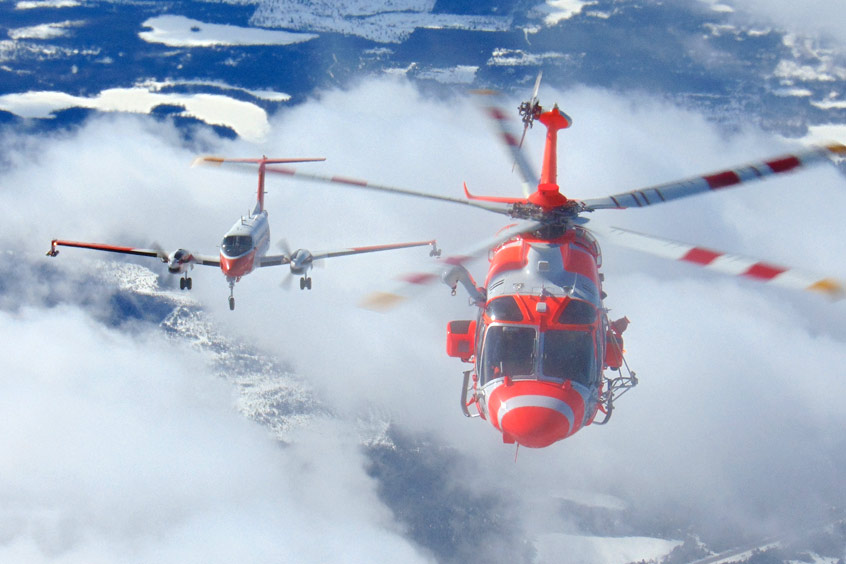ACE 2026 - The home of global charter.
• Leonardo Helicopters
Aircraft
• Swiss Air-Rescue Service Rega
BAN's World Gazetteer
• Italy The bimonthly news publication for aviation professionals.
The bimonthly news publication for aviation professionals.

Swiss Air-Rescue Rega and Italian helicopter manufacturer Leonardo have terminated the agreement to purchase three new AW169-FIPS rescue helicopters with a full ice protection system as it has proved not possible to develop them in accordance with the contractually agreed specifications. Delivery of the three rescue helicopters had been scheduled for 2023.
Leonardo recently informed Rega that the three ordered AW169-FIPS rescue helicopters cannot be delivered in compliance with the contractually agreed specifications. According to Leonardo, while the newly designed anti-icing system fundamentally works, a helicopter fitted with it no longer meets the agreed high performance requirements laid down by Rega. This is shown by the evaluations of various series of test flights conducted by the manufacturer in North America. Consequently, both parties have mutually agreed to rescind the agreement and the advance payments already made by Rega will be refunded in full.
Today, thanks to instrument flight rules, the current fleet of Rega helicopters can already fly by autopilot along predefined routes to various Swiss central hospitals in poor visibility and cross mountainous regions despite low-lying cloud by following the flight routes in the Low Flight Network. One of the last remaining limitations is, however, the icing conditions, which can occur, for example, due to low temperatures in clouds or to heavy snowfall. An anti-icing system would enable flights to be performed even in these conditions, as it heats the critical parts of the helicopter and ensures that no ice builds up there.
However, as only large helicopters equipped with an anti-icing system currently exist but are too heavy to land on hospital helipads, Leonardo initiated a development project at Rega's request in 2015. Leonardo set out to develop the world's first medium-weight, fully de-icing helicopter. From the outset, Rega and Leonardo were aware that this was a pioneering project, with no guarantee of it being implemented. For this reason, recognition and gratitude are due to Leonardo for taking this development risk.
Despite and precisely because of the technological limitations that still remain, Rega will continue to pursue its vision of all-weather air rescue in order to help even more people in distress in future. It remains Rega's declared objective to also be able to fly missions for patients under icing conditions. Rega therefore intends to follow the technological developments very closely and is convinced that one day it will be possible to also equip medium-weight helicopters that are suitable for use by Rega with an anti-icing system.